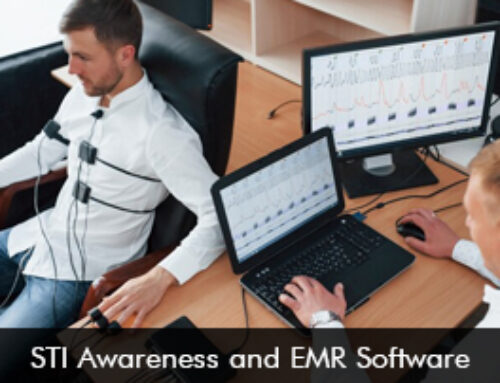Healthcare providers are embracing digital health services and technologies to extend care to their patients especially during the COVID-19 pandemic. What is digital health? Digital health is when practitioners use technology to help improve their patients’ health and treatment process. Digital health includes the use of Artificial Intelligence (AI), wearable gadgets, mobile apps for doctors and patients, and Electronic Medical Records (EMR) Software solutions. These digital healthcare trends have transformed the way the healthcare system operates by enhancing workflow productivities and streamlining daily tasks.
77% of residents living in the US own a smartphone which means they can receive care opportunities through digital platforms of Telemedicine Software and stay in touch with their provider through Patient Portal services. Mobility and convenience are what the patient of today wants which has automatically increased the demand for digital healthcare services.
The Significance of Digital Health
Digital health has made it possible to prevent diseases and monitor patients with chronic conditions while lowering the overall costs and increasing productivity for the medical practice. Digital health tools are playing a vital role to help identify new illnesses and diseases. These tools help the doctor to take action before the disease gets worse. These tools can also help to shorten the length of the illness and reduce any symptoms. Digital health has the benefits to improve quality of life and reduce financial bills and costs for both the healthcare provider and the patient.
The concept to enhance medical care extends from the hospitals to clinics, homes, and the community. In-hospital digital solutions include robotic surgery machines, wireless monitoring systems, and connected equipment. In the clinic, EMR software solutions and medical apps for doctors can be used to streamline workflows and automate day-to-day administrative and clinical procedures. At home, patients can use telemedicine services and health apps to monitor their health conditions.
Healthcare providers have adapted to Electronic Health Records (EHR) Software and other digital tools to improve patient care, save time, and reducing the risk of errors, and enhancing staff productivity. Doctors are increasingly using medical apps on their smartphone devices which helps them find essential drug information and provide specialty content. When medical systems are automated there are significant cost reductions and the digital health tools eliminate any human mistakes and errors. Through data analytics, health condition monitoring, and automatic abnormality alerts patient safety is greatly enhanced.
Through digital health tools, health information is available at the hands of the healthcare provider. Through tools like online patient portals patients are also able to participate in their healthcare process, they can receive medical test results and communicate with their doctor.
Better communication possibilities and opportunities are provided through communication tools and online video conferencing capabilities in the EMR software. The communication tools help to improve relationships and also enhance care coordination across different healthcare mediums.
Challenges of Digital Health
The crucial issue associated with digital health includes cybersecurity. Medical software developers have the responsibility to store data safely and protect it from attackers. For data protection against cybersecurity threats, developers make sure to provide complete encryption of data. EMR software vendors ensure security through HIPAA Compliance platforms to protect sensitive patient data that will be exchanged electronically. Since more and more healthcare professionals are using the digital platform to engage with their patients, they must prioritize patient safety and are updated with the latest security trends.
Final takeaway
Amidst the pandemic it is almost impossible for clinics and hospitals to operate without deploying healthcare digital solutions, the technology is sustainable and has helped practices thrive in crisis by proving care opportunities remotely and improving the standards of care for their patients.







